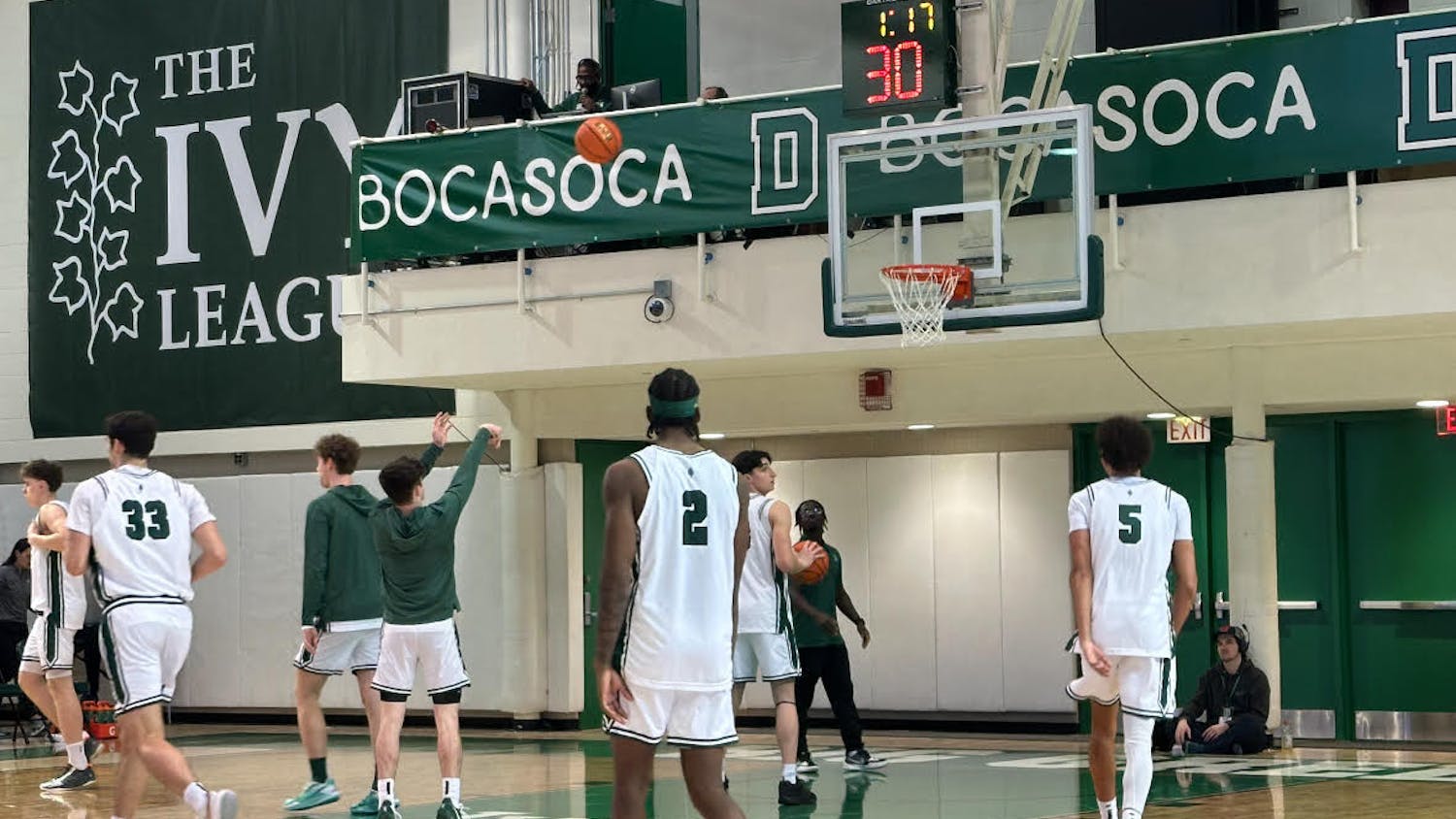William Storo, chair of Pediatrics at Dartmouth-Hitchcock Concord, showed clips of New York Mets outfielder Jason Bay colliding into the outfield wall, Boston Bruins hockey player Patrice Bergeron getting checked hard into the boards and U.S. Skier Scott Macartney '01 seizing as his body slid across the finish line after a major fall at Dartmouth-Hitchcock Medical Center's symposium to present the new Sports Concussion Program this Wednesday.
The Sports Concussion Program, led by director Michael Sparks, was established this August by the Department of Orthopedics.
The program offers both baseline neurospychological testing and post-concussion treatment.
Baseline test results will allow for post-concussion comparison and facilitate better treatment plans. If athletes do not have baseline testing, then their post-concussion test scores must be compared to age-matched norms, Sparks said.
Outside of the auditorium where the symposium was held, computers were set up to allow baseline testing for children.
Storo also presented some statistics in his presentation 14 percent of children who been diagnosed with concussions continue to have post-concussive symptoms three months later, the Center for Disease Control estimates that there are 100,000 annual concussions per year in high school athletes and around two-thirds of concussions are predicted to be unreported.
Dartmouth already has concussions protocols that have been in place for nearly 10 years, which DHMC's Sports Concussion Program now echoes, head athletic trainer Jeff Frechette said.
"Dartmouth College has been involved with this the issue has really come to a head over the last year and a half," Sparks said.
All Big Green athletes that play high-risk sports receive baseline testing on the ImPACT program, which is a neuropsychological testing program. Based on the post-concussion ImPACT scores, a neuropsychologist at DHMC then guides the athlete with a return-to-play plan.
In order for Dartmouth athletes to resume play, they must be symptom free, have scores that have returned to baseline on the ImPACT program and be cleared by John Turco, the Director of Dartmouth College Health Services, Frechette said. Other variables that are taken into account are whether the athlete remains symptom free through a gradual, non-contact exercise program and whether the athlete has had prior concussions, according to Turco.
The category of high-risk sports is broad and includes football, soccer, hockey, lacrosse, field hockey, basketball, baseball and jumping in track and field.
Athletics must get rid of the "don't ask, don't tell" policy regarding concussions, which involves athletes not wanting to inform coaches and trainers of possible injury because they do not want to stop playing, Storo added.
"That has always been a perceived barrier," Turco said. "I am seeing more relatively minor concussions. There is so much publicity that is potentially frightening, that I think more and more students are coming forward. First, it is a big change in the national protocols five years ago, within 15 minutes, someone could be cleared by doing a quick exam on the sidelines. Now, if someone is thought to be concussed, they do not return to play that day."
Concern over concussions has also breached the realm of professional sports as the NFL recently announced a new rule that players will face suspension after "devastating hits" and "head shots," according to ESPN.com.
"Certainly the media attention that the issue is getting is bringing the issue to the forefront," Frechette said.
The Dartmouth athletic program is currently involved in three different research studies on head injury, according to Frechette.
There is also an increasing focus on trying to prevent head injury in sports.
"Everyone looks at equipment, and a lot of people market equipment that is aimed at reducing concussions, but there is really no helmet made that can make the claim that it is concussion-proof," Frechette said. "We just aren't there and I am not sure if we will ever get there."



